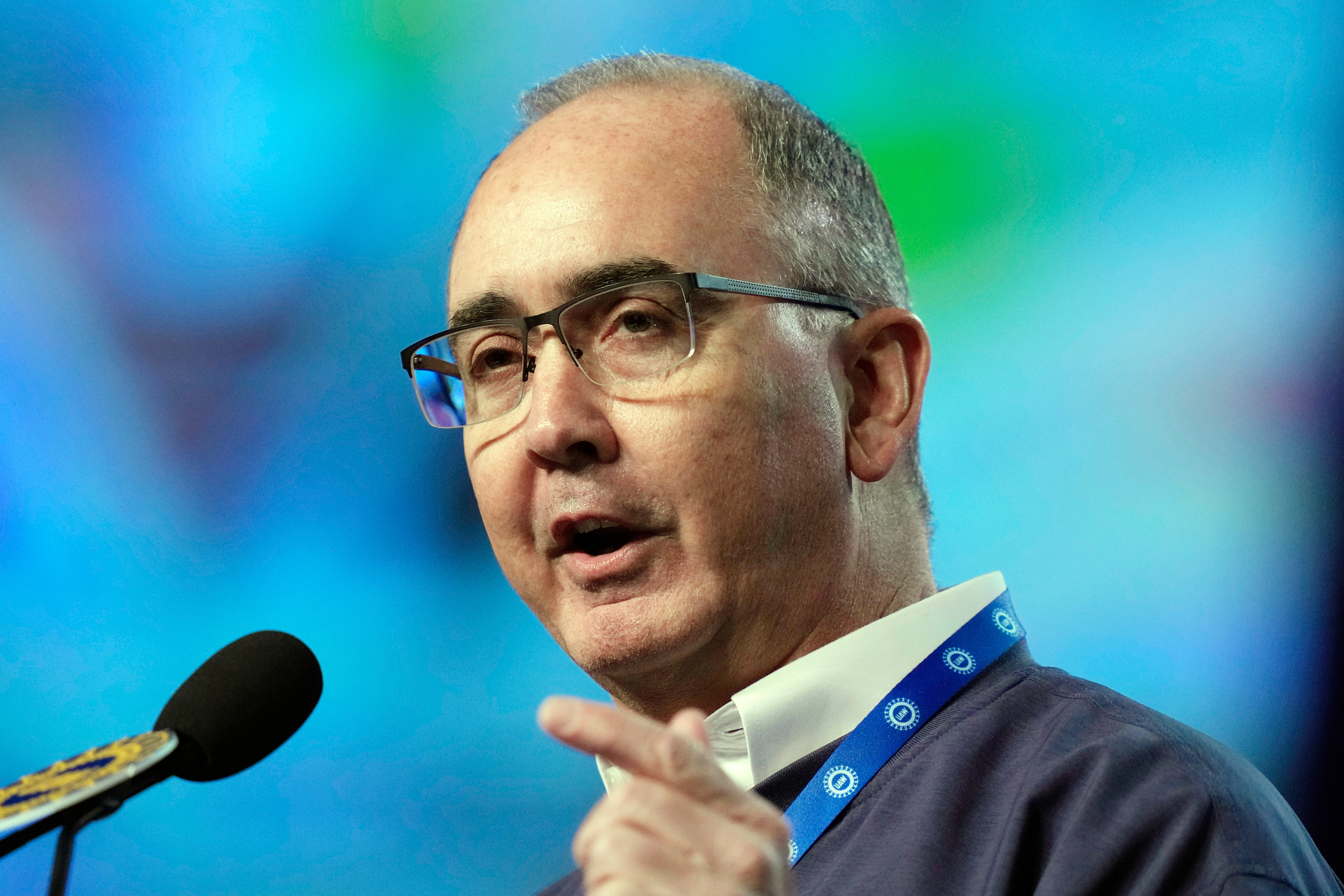New UAW leader already has issues with Detroit automakers
The new president of the United Auto Workers union isn't happy with Detroit's three automakers

Your support helps us to tell the story
From reproductive rights to climate change to Big Tech, The Independent is on the ground when the story is developing. Whether it's investigating the financials of Elon Musk's pro-Trump PAC or producing our latest documentary, 'The A Word', which shines a light on the American women fighting for reproductive rights, we know how important it is to parse out the facts from the messaging.
At such a critical moment in US history, we need reporters on the ground. Your donation allows us to keep sending journalists to speak to both sides of the story.
The Independent is trusted by Americans across the entire political spectrum. And unlike many other quality news outlets, we choose not to lock Americans out of our reporting and analysis with paywalls. We believe quality journalism should be available to everyone, paid for by those who can afford it.
Your support makes all the difference.To say that the new president of the United Auto Workers union is unhappy with Detroit's three automakers would be an understatement.
Shawn Fain, who took office in March after workers voted to sweep out most of the union's old leadership, listed grievances with Stellantis, General Motors and Ford in a wide-ranging talk Friday with reporters.
The disputes surely will become part of national contract talks between the union and the auto companies that will begin this summer. Agreements with all three expire on Sept. 14, and bargaining is expected to be contentious.
Speaking to the Automotive Press Association in Detroit, Fain said members are demanding that the union win back cost-of-living pay raises and pensions they lost, and the elimination of tiers of workers who are paid differently but do the same jobs. They also want assurances that good-paying union jobs will be preserved as the companies transition from gasoline-powered vehicles to those that run on electricity.
Auto companies, he said, have made billions over the last decade but workers haven't gotten their fair share since the companies got into financial trouble in 2009.
“I want to work with the companies. I want to have a good relationship," Fain said. "But if they're not going to treat our members with respect and not give them their due, then we're going to have issues.”
His biggest beef, though, seemed to be with Stellantis, which is moving to close a factory in Belvidere, Illinois. The company also failed to include the union when it announced a joint-venture electric vehicle battery factory in Kokomo, Indiana, Fain said.
Asked if closing the Belvidere plant was a red line for the union that would provoke a strike, Fain said he didn't want to talk about the union's plans.
“It's unacceptable what they've done there,” he said. “And I've been very clear with the corporation that we expect things there to change.”
Stellantis placed the Belvidere plant on “idle” in February and laid off most of its roughly 1,350 workers. The company wouldn't comment on Friday.
All three companies have announced plans to build multiple joint-venture battery factories in the U.S., and only GM thus far has recognized the union to bargain for workers, at a plant near Warren, Ohio. Fain said. GM has two more battery plants in the works in Tennessee and Michigan, and Ford is planning an assembly plant in Tennessee and three new battery plants in Kentucky and Tennessee.
Fain said he understands the need to form ventures to get access to technology, but “they can't form joint ventures with the intents and purpose also of circumventing the commitment to our members and to agreements.”
He said there's no reason the companies couldn't form a joint venture with the union so workers have a place to go when plants that make things for internal combustion vehicles close. Fain said he expects change to happen now with the battery plants, but the companies may want to wait for the contract talks.
GM, he said, is offering $16.50 per hour with a top wage of $20 at the Ohio battery plant, even though it takes two years of training to do the jobs. Those wages, he said, would set members back 10 or 15 years. Production workers now make about $32 per hour.
“That is a race to the bottom,” Fain said of GM's offer. “These should be higher wages than our production standards, not lower.”
Ford and GM said in statements that they look forward to working with the union. Ultium Cells LLC, GM's battery joint venture, wouldn't comment on the bargaining but said it would work in good faith with the UAW to reach an agreement.